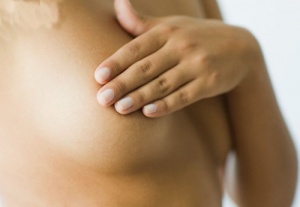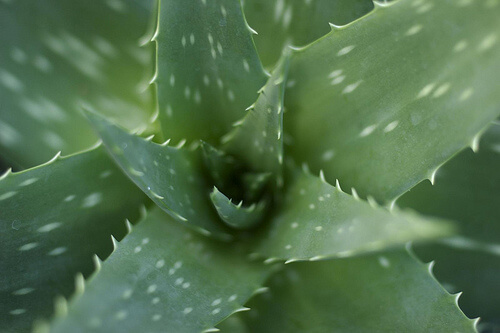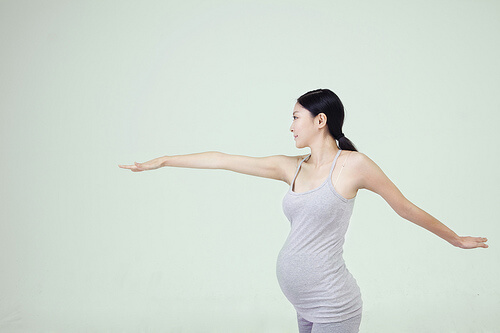Why Do My Breasts Burn and Hurt?

If your breasts burn and hurt, it can be due to various reasons. Although you should always see your doctor first in order to rule out any serious problem, in this article we’ll explain the possible causes of this discomfort, which can be related to hormonal, growth, or allergy matters.
We’ll also share some natural remedies based on medicinal plants, which will help you treat the discomfort easily and without risking side effects.
Possible reasons why your breasts burn and hurt
Muscle pain
In some cases – mainly in young girls, although it can happen at any age – women can suffer from breast pain that in reality happens in the muscles. For example, exercises that impact the chest area can make breasts burn and hurt.
In the case of young girls, breasts may hurt because they are still developing. Basically, they can cause some discomfort as they grow.
A doctor should be the one who rules out any other health problem. If they confirm that it’s due to muscle issues caused by exercise, you can take a natural magnesium-based supplement.
Burning due to allergies
Burning in your breasts can be caused by an allergic reaction to certain clothing detergents, deodorants, or products that come in direct contact with the skin. Because of that, you should think about what products you have used and search for alternatives that are more gentle and natural.
We recommend making a natural detergent to wash your clothing and using alcohol-free deodorants. If you still experience burning, use aloe vera gel to soothe it.
You might like: Sagging Breasts Are Caused by These 5 Habits
 Dry skin
Dry skin
Your skin will be more vulnerable to problems like these if it’s very dry. For that reason, we recommend that you hydrate it – especially in the nipple area – with some kind of vegetable oil, moisturizing cream, or shea butter. Try to make sure that it’s a natural product that doesn’t cause allergies.
Before menstruating
If your breasts burn and hurt right before or during menstruation, it’s almost definitely due to hormonal problems. In that case, see your gynecologist or GP – they’ll be able to assess your symptoms and provide an accurate diagnosis.
Some natural options to keep in mind are evening primrose oil, chasteberry, angelica, Peruvian ginseng, or sage.
During pregnancy
One of the symptoms of pregnancy can be burning or pain in your breasts, which is why you should also rule out this possibility, since it’s one of the first possible symptoms. This is due to the increase of blood flow to the area, especially in the nipples. As your body gets used to this feeling, the discomfort tends to lessen.
In any case, you can find relief with the help of marigold flower infusions. Apply these to your chest as compresses whenever they start to burn.

Mastitis
If you notice that your breasts burn and hurt during lactation, it’s very possible that you have mastitis, an inflammation of the mammary tissue caused by an infection, which also tends to be accompanied by fever and fatigue.
You can treat mastitis by preparing an infusion with thyme concentrate, which ought to be applied everyday to the nipple and around it with the help of a cotton ball. Let it dry. You can also take a vitamin C and propolis-based supplement.
Prevent Breast Cancer
You should not get alarmed if you have persistent pain and burning, but there’s no apparent cause. Nevertheless, you should see a doctor in order to rule out breast cancer. You can also do a self breast exam.
Standing in front of a mirror, palpate the entire breast area slowly and deeply in circular motions. Try to fell all around it, up to your armpits. Do this thoroughly with both breasts.
If you notice any ball- or oddly shaped lumps, see the doctor as soon as possible to rule out this disease. Another symptom of breast cancer is loss of liquid through the nipple, either blood colored or yellow. This should also be a sign of alarm.
Images courtesy of itmpa and ilyoungko
All cited sources were thoroughly reviewed by our team to ensure their quality, reliability, currency, and validity. The bibliography of this article was considered reliable and of academic or scientific accuracy.
- World Health Organization. (2009). Session 7: Management of breast conditions and other breastfeeding difficulties.
- American Cancer Society (s.f.) Afecciones no cancerosas de los senos
- Davidson NE. Breast cancer and benign breast disorders. In: Goldman L, Schafer AI, eds. Goldman-Cecil Medicine. 25th ed. Philadelphia, PA: Elsevier Saunders; 2016:chap 198.
- Fundación Luis Pasteur, Enfermedades de la glándula mama, s.f.
- National Cancer Institute, Breast changes and conditions, Octubre 2018
This text is provided for informational purposes only and does not replace consultation with a professional. If in doubt, consult your specialist.








